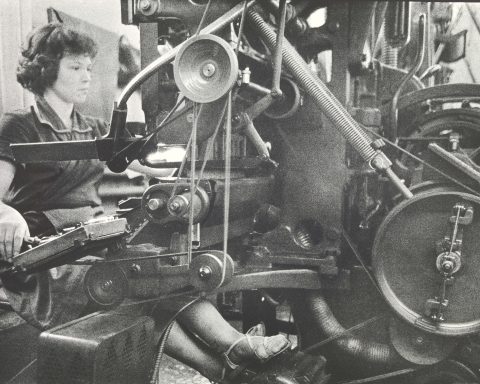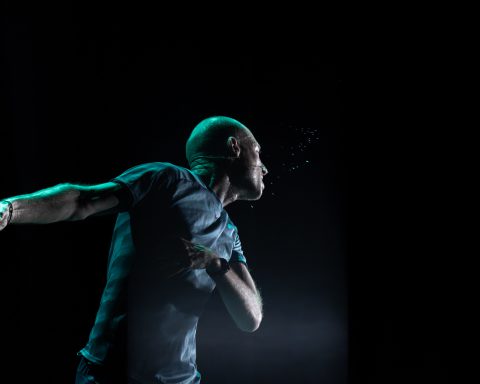When my ex and I first came to Leipzig, I didn’t really know anyone. I often went to a dönner shop near our home. I take after my mother (she never met a stranger), and naturally engaged the owner in conversation. He and his wife had met in Baghdad and had come here to escape Hussein. His children grew up here and one was starting med school in town. When I went home, I told my boyfriend I’d like to ask them to dinner. He looked shocked and said we couldn’t. When I asked why, he said “Because we don’t know them.” Clearly we had different ideas of hospitality.
Whom do you invite to your home?
How do you treat them once they get there? How do they respond to the invitation?
These are some of the questions that form the seed of the recently performed collaborative project The Stranger Question, from the JAKK Collective, which opened the season at the Lofft. It questions hospitality. This is the hospitality you know. This is also the hospitality with which you are unfamiliar.
This is radical hospitality exposed through the medium of dance, theatre and the visual arts. The JAKK collective offers the personal experiences of its members: Alma Toaspern (DE), Juan Betancurth (CO), Kathryn Hamilton (TUR, UK) and Kinga Jaczewska (PL). Anything else would be inhospitable, for they want to engage you in the discussion rather than to make a proclamation.
The term “radical hospitality” was coined by French deconstructionist philosopher Jacques Derrida. He points out that there is a time limit. At some point a guest takes over and makes the host uncomfortable in their own space. This power shift and the point at which it occurs is flexible, depending on the circumstances. But what are these circumstances?
The JAKK collective looks at each hospitality subtopic from various perspectives, starting with the body itself and expanding it to greater society.
A fetus is not seen as a parasite. Once the child is born and continues to need care, it is still seen in a positive light. Later, as the mother (or host) ages and the child matures, the roles are reversed and the child is the carer.
But when we shift to a foreigner and host country perspective, many see this as a parasitic situation. They see the host being eaten alive. For some, foreigners are ok as long as they are temporary. The most recent example is Brexit, but Germany’s Turkish guest workers continue to be an issue more than 50 years later.
There are many who see immigrants as culturally and economically valuable. Research shows that second-generation citizens are just as likely to be educated and have good jobs as any other member of society. They make a valuable contribution to the system.
The JAKK collective has experienced ignorance firsthand.
Dancers and performers are truly international citizens, usually living in a different country from their birth. They work in various countries and are often met by customs officers who have no knowledge of what they do. In fact, Juan Betancurth was not allowed to enter Germany, so he must be skyped to participate in the performance.
This adds the element of chance we all experience. Will there be a communication failure or will it go off without a hitch?
Whether there in the flesh or not, Juan has a strong influence on the work. His obsession with women’s work fits perfectly with the theme of hospitality.
The show opens with Kathryn Hamilton performing in Juan’s mask. The face has been replaced by a scrub brush. It is framed in a tasteful floral pattern, like one might find in a hostess apron or in the wallpaper of a dining room. Kathryn delicately, and with great care, uses it to clean herself as a cat would. What is a stronger sign of comfort than a cat bathing?
There are so many powerful images in The Stranger Question.
From the very beginning, my mind went through a series of thoughts inspired by the sight and sound of neon men being thrown against metal. Fly zappers, electric fences, force, desperation, desire, escape.

At one point Kinga Jaczewska runs through a never-ending list of ethnic foods while never losing a grinch-like smile. Meanwhile, Kathryn and Alma Toaspern clamber and compete, ending with a triumphant Kathryn standing on the hands of the defeated Alma.
The Stranger Question is minimal. Each moment invites your participation in thought and invokes your experiences. It is all very human and inhumane.
Next performance: Frankfurt (24-26/08, 8pm)

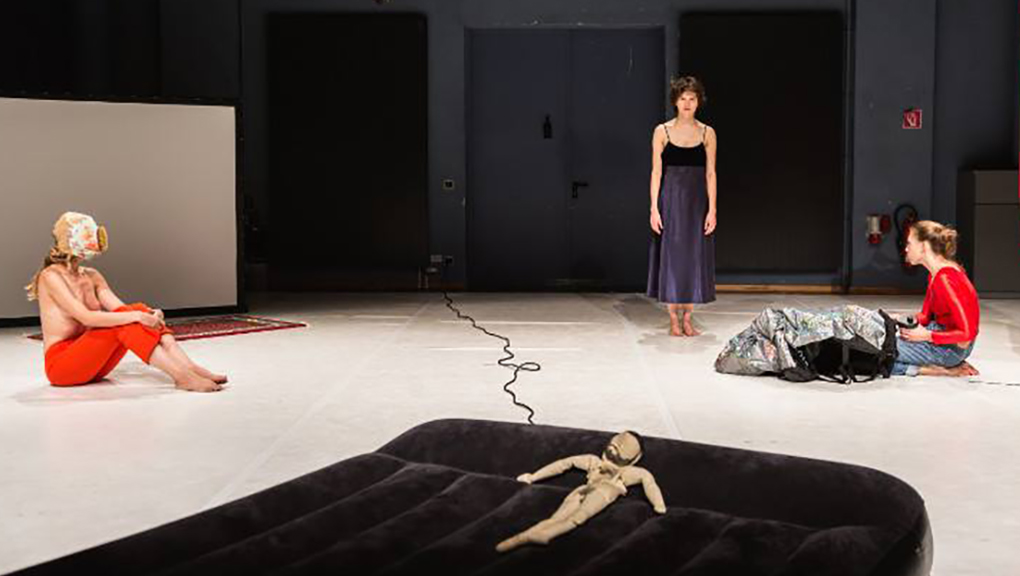
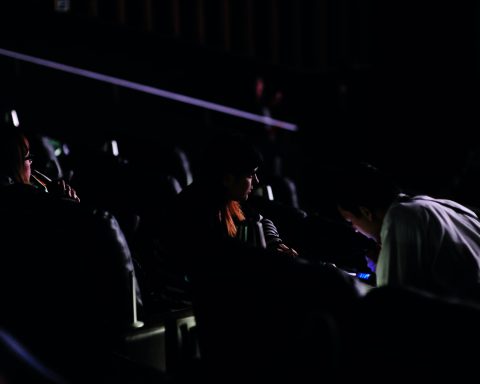
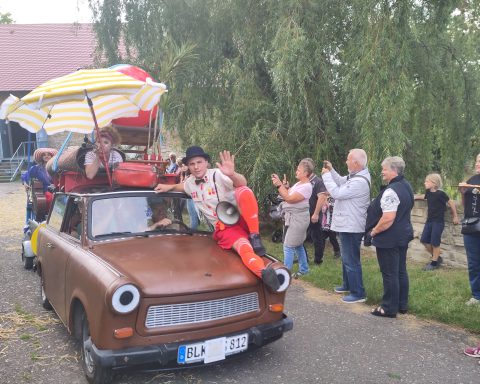




![Wine & Paint event on 9 Nov. 2024 at Felix Restaurant, Leipzig. Photo: Florian Reime (@reime.visuals] / Wine & Paint Leipzig](https://leipglo.com/wp-content/uploads/2024/12/pixelcut-export-e1733056018933-480x384.jpeg)
